第2章 CHAPTER I(2)
"Monsieur," said a wise political economist, the director-cashier-manager and secretary-general of a celebrated fire-insurance company, "out of every five hundred thousand francs of policies to be renewed in the provinces, not more than fifty thousand are paid up voluntarily. The other four hundred and fifty thousand are got in by the activity of our agents, who go about among those who are in arrears and worry them with stories of horrible incendiaries until they are driven to sign the new policies. Thus you see that eloquence, the labial flux, is nine tenths of the ways and means of our business."To talk, to make people listen to you,--that is seduction in itself. Anation that has two Chambers, a woman who lends both ears, are soon lost. Eve and her serpent are the everlasting myth of an hourly fact which began, and may end, with the world itself.
"A conversation of two hours ought to capture your man," said a retired lawyer.
Let us walk round the commercial traveller, and look at him well.
Don't forget his overcoat, olive green, nor his cloak with its morocco collar, nor the striped blue cotton shirt. In this queer figure--so original that we cannot rub it out--how many divers personalities we come across! In the first place, what an acrobat, what a circus, what a battery, all in one, is the man himself, his vocation, and his tongue! Intrepid mariner, he plunges in, armed with a few phrases, to catch five or six thousand francs in the frozen seas, in the domain of the red Indians who inhabit the interior of France. The provincial fish will not rise to harpoons and torches; it can only be taken with seines and nets and gentlest persuasions. The traveller's business is to extract the gold in country caches by a purely intellectual operation, and to extract it pleasantly and without pain. Can you think without a shudder of the flood of phrases which, day by day, renewed each dawn, leaps in cascades the length and breadth of sunny France?
You know the species; let us now take a look at the individual.
There lives in Paris an incomparable commercial traveller, the paragon of his race, a man who possesses in the highest degree all the qualifications necessary to the nature of his success. His speech is vitriol and likewise glue,--glue to catch and entangle his victim and make him sticky and easy to grip; vitriol to dissolve hard heads, close fists, and closer calculations. His line was once the HAT; but his talents and the art with which he snared the wariest provincial had brought him such commercial celebrity that all vendors of the "article Paris"[*] paid court to him, and humbly begged that he would deign to take their commissions.
[*] "Article Paris" means anything--especially articles of wearing apparel--which originates or is made in Paris. The name is supposed to give to the thing a special value in the provinces.
Thus, when he returned to Paris in the intervals of his triumphant progress through France, he lived a life of perpetual festivity in the shape of weddings and suppers. When he was in the provinces, the correspondents in the smaller towns made much of him; in Paris, the great houses feted and caressed him. Welcomed, flattered, and fed wherever he went, it came to pass that to breakfast or to dine alone was a novelty, an event. He lived the life of a sovereign, or, better still, of a journalist; in fact, he was the perambulating "feuilleton"of Parisian commerce.
His name was Gaudissart; and his renown, his vogue, the flatteries showered upon him, were such as to win for him the surname of Illustrious. Wherever the fellow went,--behind a counter or before a bar, into a salon or to the top of a stage-coach, up to a garret or to dine with a banker,--every one said, the moment they saw him, "Ah! here comes the illustrious Gaudissart!"[*] No name was ever so in keeping with the style, the manners, the countenance, the voice, the language, of any man. All things smiled upon our traveller, and the traveller smiled back in return. "Similia similibus,"--he believed in homoeopathy. Puns, horse-laugh, monkish face, skin of a friar, true Rabelaisian exterior, clothing, body, mind, and features, all pulled together to put a devil-may-care jollity into every inch of his person. Free-handed and easy-going, he might be recognized at once as the favorite of grisettes, the man who jumps lightly to the top of a stage-coach, gives a hand to the timid lady who fears to step down, jokes with the postillion about his neckerchief and contrives to sell him a cap, smiles at the maid and catches her round the waist or by the heart; gurgles at dinner like a bottle of wine and pretends to draw the cork by sounding a filip on his distended cheek; plays a tune with his knife on the champagne glasses without breaking them, and says to the company, "Let me see you do THAT"; chaffs the timid traveller, contradicts the knowing one, lords it over a dinner-table and manages to get the titbits for himself. A strong fellow, nevertheless, he can throw aside all this nonsense and mean business when he flings away the stump of his cigar and says, with a glance at some town, "I'll go and see what those people have got in their stomachs."[*] "Se gaudir," to enjoy, to make fun. "Gaudriole," gay discourse, rather free.--Littre.
When buckled down to his work he became the slyest and cleverest of diplomats. All things to all men, he knew how to accost a banker like a capitalist, a magistrate like a functionary, a royalist with pious and monarchical sentiments, a bourgeois as one of themselves. In short, wherever he was he was just what he ought to be; he left Gaudissart at the door when he went in, and picked him up when he came out.